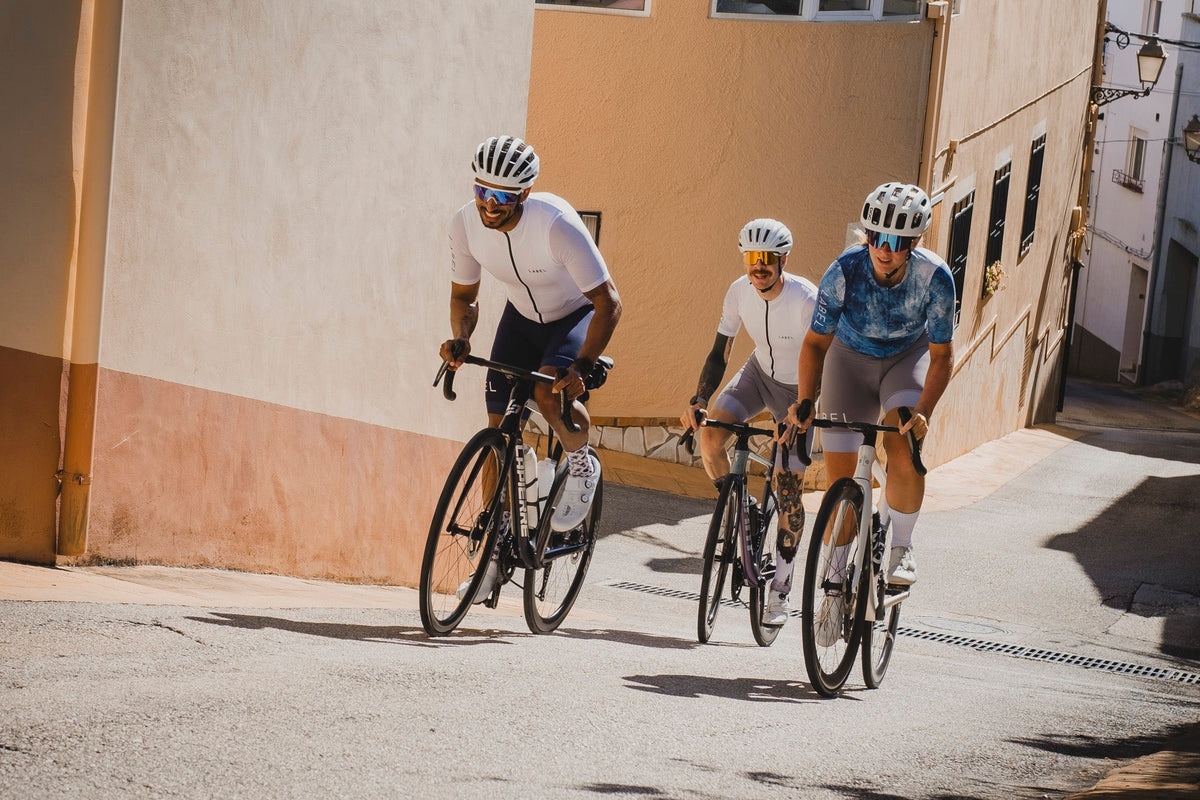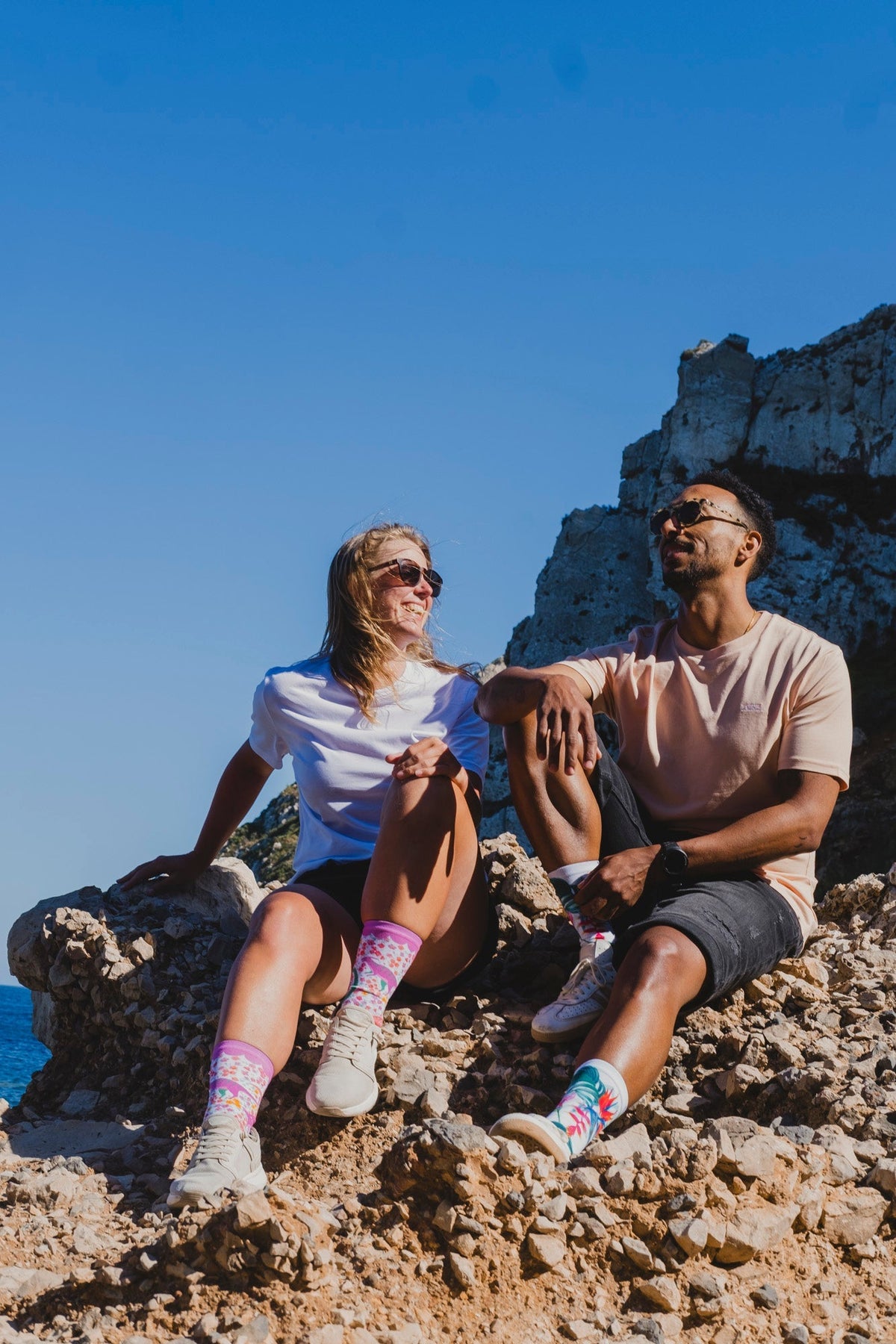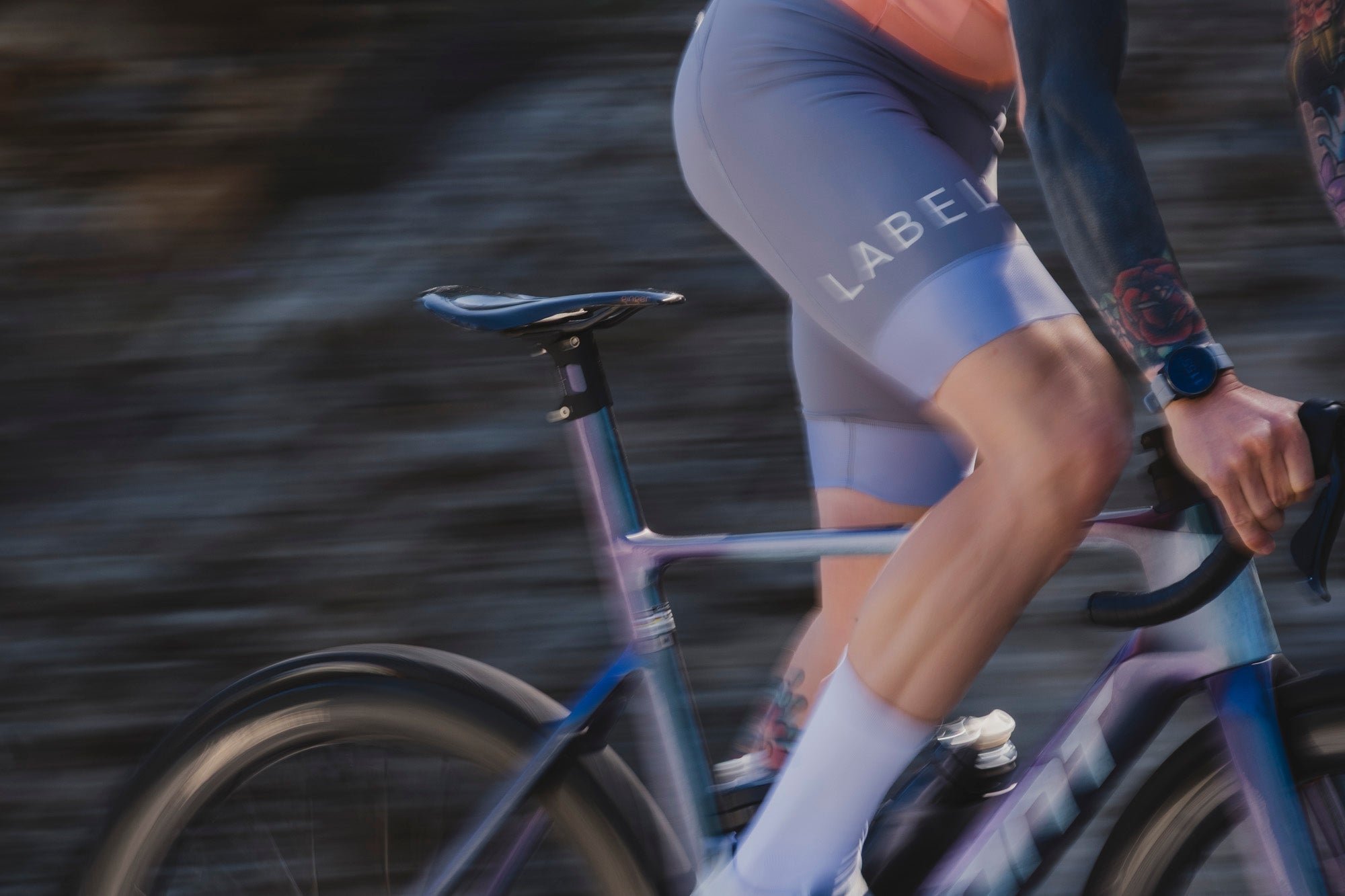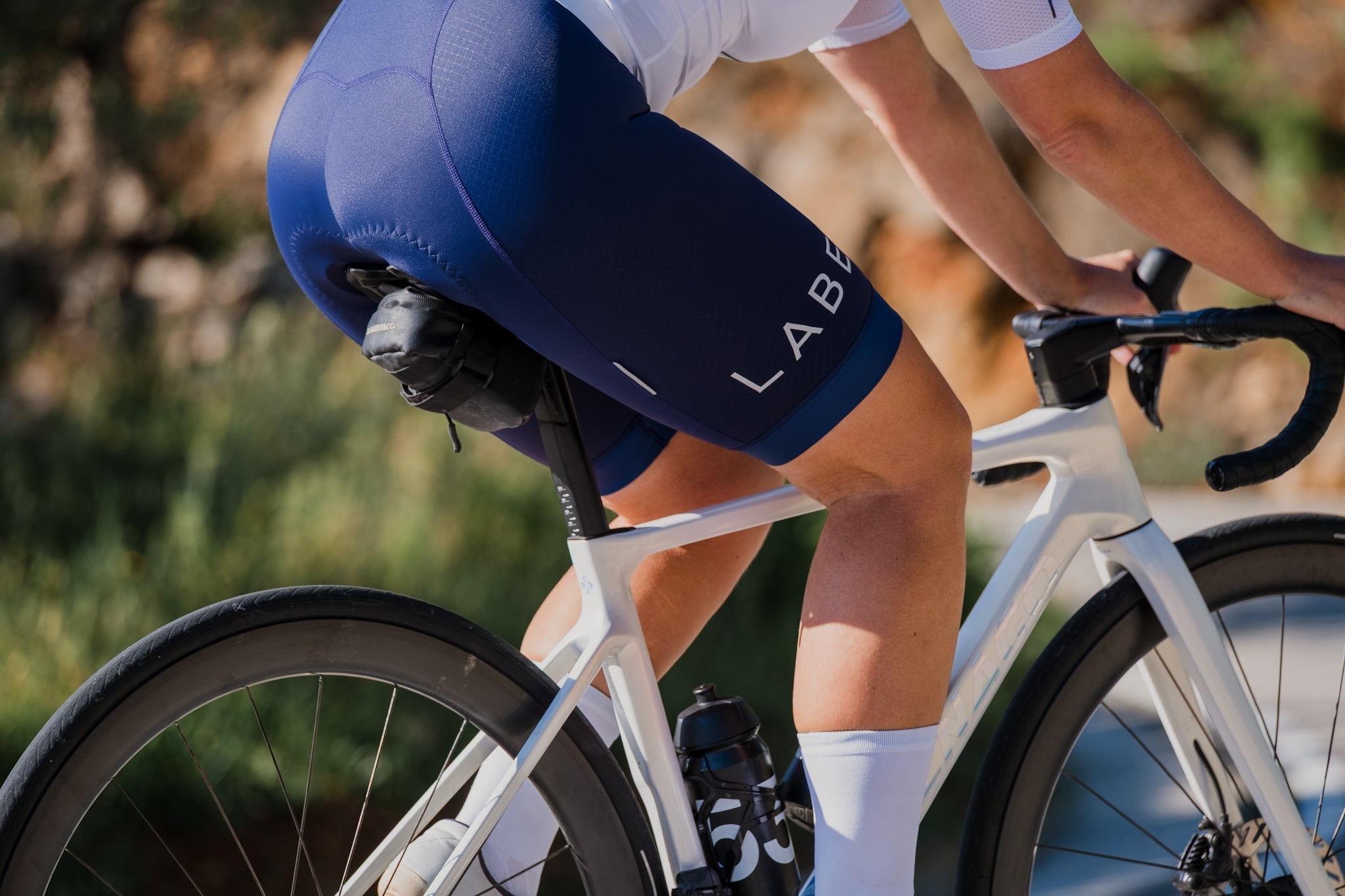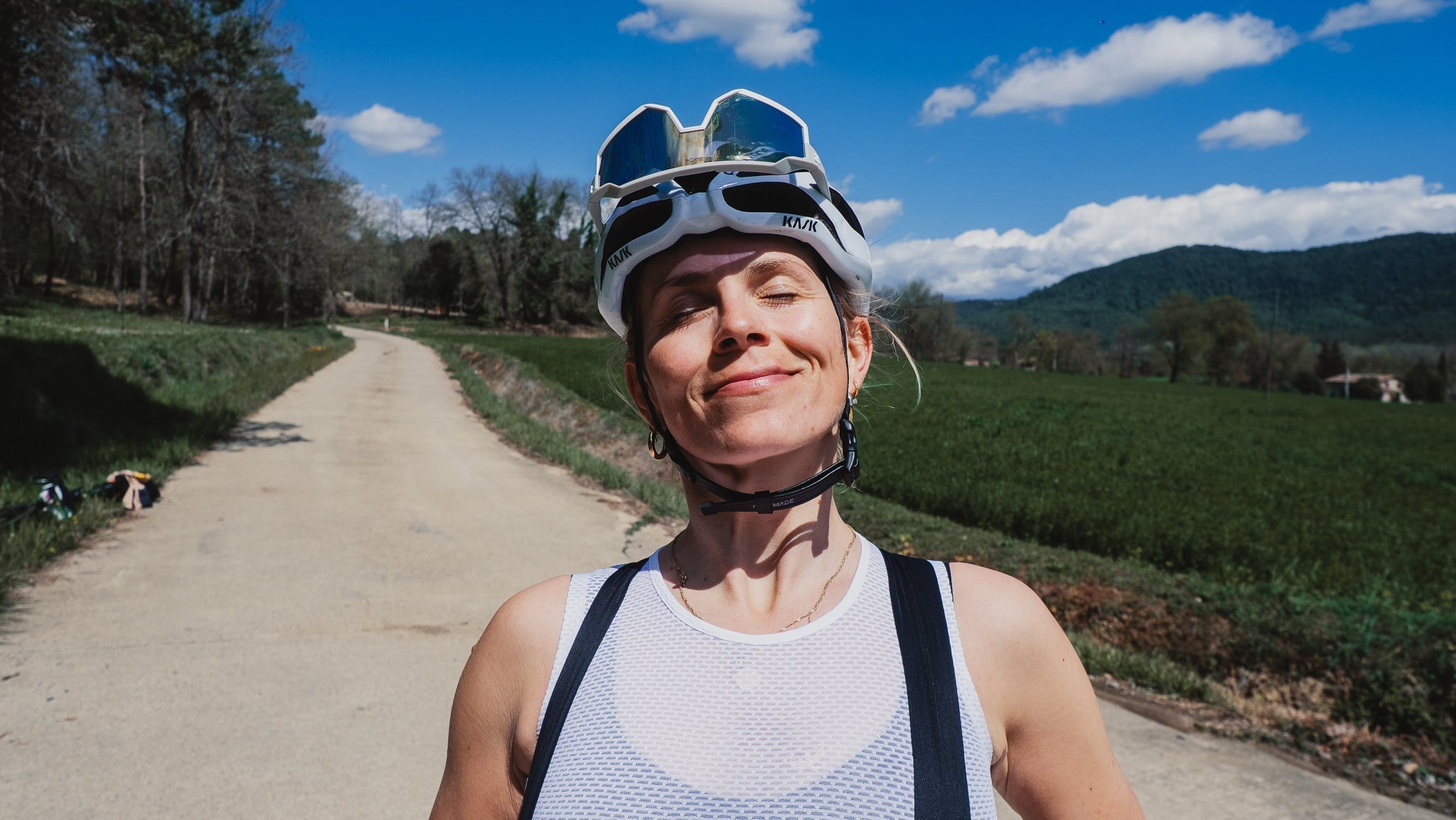
So Who is Anna Lange? Tell us about yourself.
My name is Anna, though my full name is Anna-Maria, but I've always preferred just Anna. I was born and raised in Berlin, and I spent part of my life in Potsdam at a sports boarding school where I played competitive football. That was a very formative, tough but also wonderful time. As a young girl, I started playing football in a boys' team and discovered my love for team sports there. I always felt secure in large groups because I like it when the focus isn't solely on me.:) In team sports, you function as a single unit, and it doesn't matter who you are, where you come from, how you look, or what you do – in the end, it's all about the "we".
Unfortunately, during my teenage years, I suffered several serious injuries and never really got back into sports. I tried many different activities, but it wasn't until recently that I rediscovered a genuine passion and enrichment for myself in cycling. This rediscovery of sports has given me a new perspective and joy in life. Cycling offers me the freedom to express myself while being part of a community. It's amazing how the right sport can strengthen not only the body but also the mind.
You recently did your First fixed gear race, what was it like?
Phew, my first fixed-gear race. It was exciting, full of adrenaline, tension, joy, emotions, but also fear. I had goosebumps almost the entire day because the feeling of being there was simply amazing. The many spectators created a fantastic atmosphere. I started fixed-gear riding to get into cycling. I was fascinated by the simplicity of how these bikes are built. The first time I rode one, it was an incredible feeling to experience the direct power transfer from my legs to the crank and pedals. It's not without its risks, and I always have a great deal of respect every time I get on the bike. I wanted to know early on what it would be like to participate in a race like this, but I never dared to. I was afraid of failing, of embarrassing myself. But I’ve learned that there’s no reason for that. Everyone is focused on themselves, and no one expects you to win. We create the pressure ourselves.
On the day of the race, I left all my doubts at home and pushed beyond my limits. I met people I had only known through social media before, received valuable tips, and deepened friendships. I finished 6th out of 9 and told myself: I want to do this again.For anyone who doubts themselves: don’t be afraid to try. No one is judging you, and the experience itself is priceless. You can only gain—experience, confidence, and new friendships. Take the plunge because you can achieve more than you think.
Let’s talk about the Elephant in the room: How do you feel as an FLINTA (LGBTQ) person in the world of cycling?
FLINTA (Female, Lesbian, Intersex, Non-binary, Transgender, and Agender) individuals in cycling face both challenges and progress. Historically male-dominated, the sport often lacks inclusivity, leading to discrimination and limited representation. Despite this, initiatives like inclusive clubs, gender-neutral race categories, and advocacy efforts are improving the environment and creating safer, more welcoming spaces for all gender identities and sexual orientations.
Personally, I've been fortunate not to have experienced negative incidents in this regard. As a result, I feel very comfortable in my surroundings and have had positive interactions with people I've met so far. But we still have a long way to go and must continue to fight for inclusivity and equality.
How do you think we can achieve equality in cycling? What can we all do to push things forward?
What we can all do is never stop listening and educating ourselves, even if we think these issues don't affect us.
Awareness and Education
Workshops and training on diversity and inclusion for cycling clubs and event organizers are essential. Highlighting the stories and achievements of FLINTA cyclists and other underrepresented groups can raise awareness and inspire others.
Policy and Structural Changes
Inclusive policies, such as gender-neutral race categories and non-discriminatory practices, are crucial. Increased funding and support for initiatives promoting diversity and inclusion are necessary.
Creating Safe Spaces
Establishing and supporting inclusive cycling clubs is vital. Cycling facilities should be safe and accessible for all gender identities.
Representation and Role Models
Diverse leadership and role models from underrepresented groups foster inspiration and visibility.
Community Building and Support Networks
Mentorship programs and support groups help connect and support cyclists from diverse backgrounds.
Events and Competitions
Organizing and participating in inclusive cycling events is crucial. Fair competition with equal opportunities for all participants is important.
By taking these collective actions, we can create a more inclusive and equitable cycling community. It requires efforts from individuals, clubs, organisations, and governing bodies to bring about lasting change. Let's work together for a fairer future in cycling.
We hear you have some plans to start a community for FLINTA people, can you tell us a little bit more about that?
Absolutely, that's right. For a while now, I've been planning to organize a FLINTA Ride in Berlin once or twice a month. The primary goal is to offer short rides at a very leisurely, slow pace, without focusing on training or tracking numbers on Strava. Instead, the aim is to create a welcoming space for people who might not have the perfect bike for every type of ride. Whether they ride a city bike, gravel bike, fixie, singlespeed, or even a rental bike, everyone should feel comfortable joining in.
This ride is meant to alleviate the fears that many, including myself, have faced when new to the cycling scene—wondering if they can keep up, if the pace will be too fast, or feeling embarrassed to admit if it's too challenging. When I first started, I often doubted my ability to keep up and was hesitant to join. The FLINTA is going to be designed to be a non-competitive, relaxing experience, providing an opportunity to simply enjoy, unwind, and perhaps meet new people. In today’s fast-paced world, it can be difficult to step out of our daily routines and make new connections. This ride aims to be a friendly and inclusive space where people can come together and feel at ease.
Last question, what is your advice to someone who's just entering into sport and may have some concerns about the dreading group rides and not feeling like they fit?
I believe this is something that everyone needs to decide individually, and not everyone will be able or willing to follow this advice. However, what helped me was looking for small collectives or groups and considering what I could realistically envision for myself. Initially, I focused on riding alone or with friends, gradually discovering my comfort zone and how far I could go. Then, I considered joining small group rides.
The issue is that in Berlin, it's rare to find such opportunities. It would be great if more people shared their plans. Simply saying, "Hey, I'm planning to ride today. This is the destination, who wants to join?" would make a difference. We should engage more with each other and allow others to join our plans. I try to promote this idea often on my social media for example. But in the end, what really helped me was simply taking the plunge, going out, and trying it. Instead of limiting myself from the outset, I gave it a chance. It's completely okay if you realize during the ride that it's not working for you; it's okay to say so, and no one will judge or laugh at you. On the contrary, you'll almost certainly find a supportive group of people. This fosters a sense of community and allows for personal growth.
Shop our collections
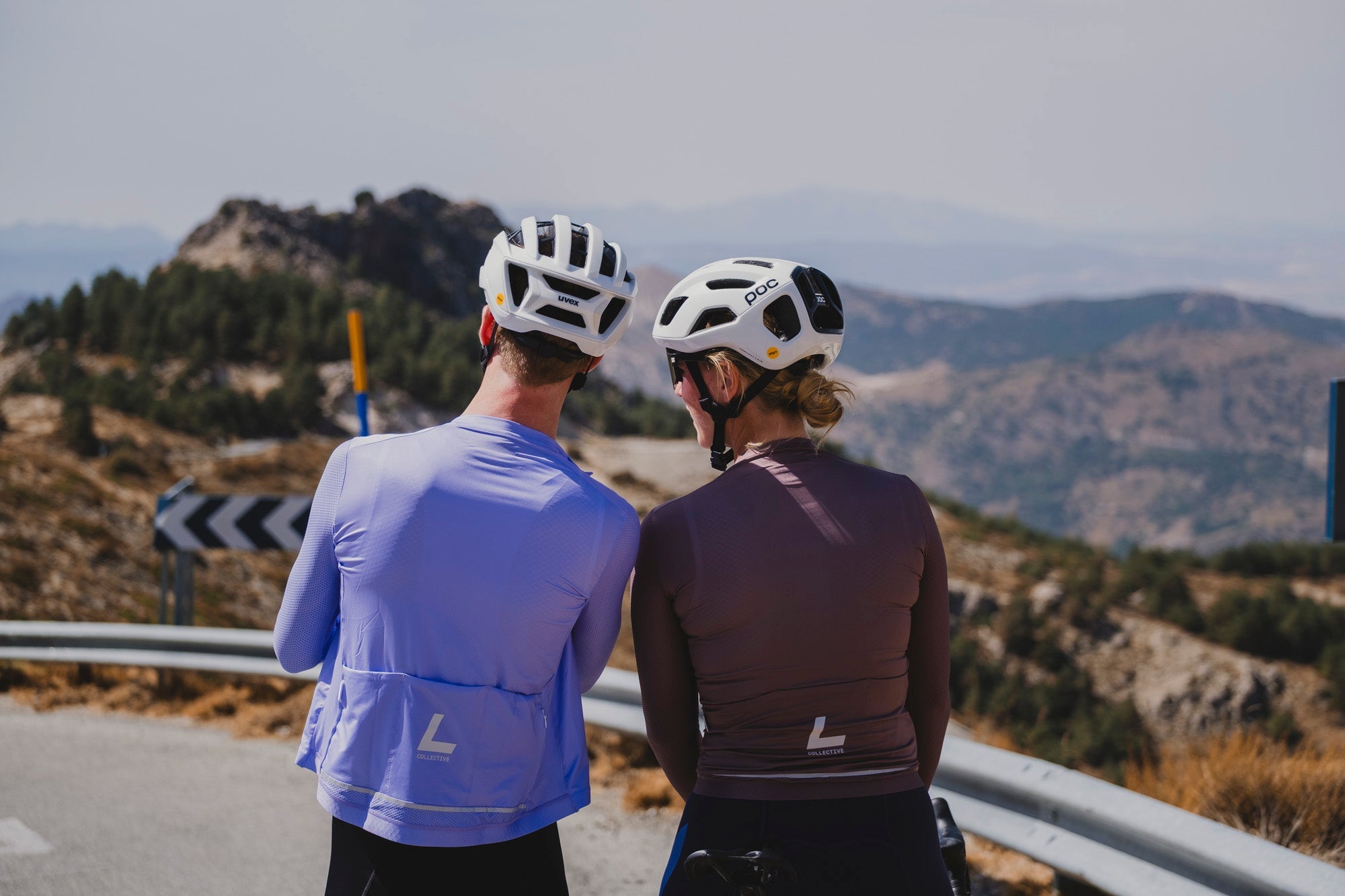
Jerseys
